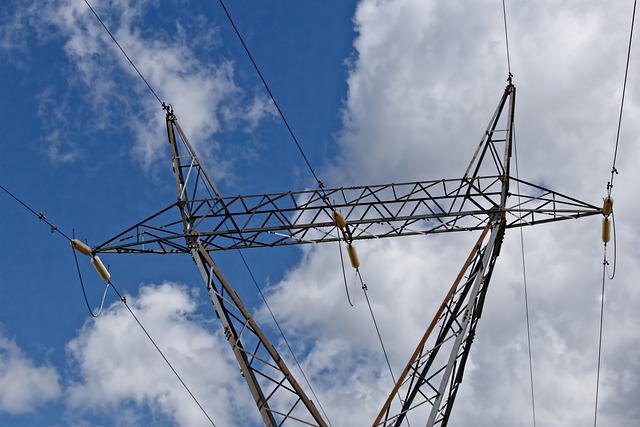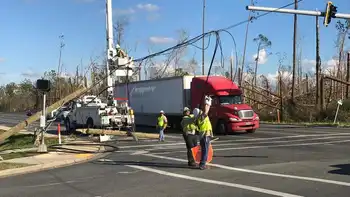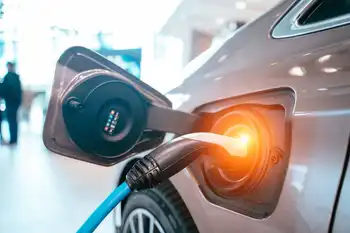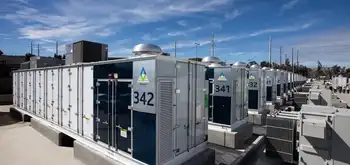Democrats say bill on energy plant incentives now more likely to pass
Since Fletcher's announcement of a "cooling off" period, area House members say they have learned more about a proposed alternative-energy-plant incentives package and are optimistic about passing legislation when the General Assembly reconvenes July 30.
"I think things have changed since we were there the first go round," said Rep. Brent Yonts, a Greenville Democrat. "I think we have to now respond to that change of circumstances."
Less than two hours after gaveling in to start the special session, the House voted 56 to 34 in support of final adjournment, with House Democratic leaders claiming the session was unnecessary, lacked the needed preparation and was wasting taxpayer mone.
In the House's absence, the Senate conducted committee hearings and passed legislation July 9, including the incentives bill and four other bills containing the entire 67-item agenda on Fletcher's special session call.
Rep. Jim Glenn said he is prepared to return to work in Frankfort but believes the House needs more information about Senate Bill 1, which would provide tax-based incentives to locate a coal-to-natural-gas conversion plant in Kentucky. Peabody Energy Corp. officials have said the company will decide within 90 days where to locate such a plant, which would bring an investment of at least $2 billion, and that an incentives package will factor in to whether that plant will be in Kentucky Indiana or Illinois. Peabody has said it is considering a host of sites in western Kentucky, including sites near its coal reserves in Muhlenberg, Union and Henderson counties.
"I am ready to come back any time leadership asks us to come back," said Glenn, an Owensboro Democrat. "(But) the only thing we have is broad sweeps of information and guessing at what we actually need." Rep. Jim Gooch, a Providence Democrat and the only Democratic House member to vote against that chamber's adjournment, said the energy legislation is not something that can be put off until next year. The governor could have shown more leadership on a similar energy bill, House Bill 5, during the legislature's regular session earlier this year, Gooch said, but the issue definitely has urgency now.
Testimony by a Peabody official July 6 about the timeline for its site decision and the need for incentives helped make the case for action this summer, Gooch said. "I think that makes the argument that this can wait until January not valid," Gooch said. "If Peabody announces in September or October that they're going to Illinois, I don't see how anybody can but blame the Democrats for not getting it done."
House Speaker Jody Richards released a letter saying he had been in contact with Peabody, and that CEO Gregory Boyce is willing to meet with Richard, Senate President David Williams and Fletcher in St. Louis to talk about a coal-to-natural gas lant. Richards has said a commitment to Kentucky is needed from Peabody before any additional incentives package is passed by the legislature, an idea both Fletcher and Williams have disputed.
Rep. Tommy Thompson, a Philpot Democrat, said he believes such a meeting will help the legislature better understand Peabody's needs and better craft an incentives package that will benefit Peabody and the state.
"I think the meeting would be more productive than anything," Thompson said. "I applaud the speaker for trying to convene that." Fletcher spokeswoman Jodi Whitaker said the administration was still working to confirm Richards' request.
Whitaker added that Peabody officials have already offered evidence that an incentives package is needed to locate in Kentucky and said Kentucky would be a preferred site for the plant. "We've already received a significant commitment from them," Whitaker said.
Williams responded to Richards by letter, saying that he did not understand the need for the trip to Peabody headquarters.
"Only your use of leadership to summon your members back to Frankfort to act on this bill (Senate Bill 1)... will make you and the House relevant in accomplishing the important goal of developing Kentucky's coal assets and creating thousands of jobs," Williams said in the letter.
The night Fletcher announced the three-week break, the Republican Party of Kentucky made more than 150,000 automated calls to constituents of House Democrats around the state criticizing the House's adjournment. Yonts, who did not cast a vote on whether the House should adjourn, said he has heard from constituents that received calls about the House's actions, but he believes the tactic backfired.
"This added fuel to the flame," Yonts said. "At this point, I think the House and Senate leadership and the governor should be the ones talking. Partisanship does not have a place." Steve Robertson, chairman of the Republican Party of Kentucky, stood behind the calls, which he said were tailored to a legislator's specific district.
For instance, calls in Owensboro regarding Glenn mentioned that the restoration of the $14.1 million advanced technology center expansion at Owensboro Technical & Community College has been included in the special session call. "I think it's important that constituents know that their elected leaders aren't doing what they're elected to do," Robertson said.
Robertson criticized the argument by House leaders that the session is wasting money at a cost of $60,000 a day when approval of previously vetoed capital projects this summer could mean a savings of more than $20 million in inflationary construction costs.
Jennifer Moore, vice chairwoman of the Democratic Party of Kentucky, said the calls, which were being made about the time Fletcher was calling for a "cooling off" period, were vindictive.
"It shouldn't be a political, partisan issue," Moore said of the session.
Related News

Trump's Vision of U.S. Energy Dominance Faces Real-World Constraints
WASHINGTON DC - Former President Donald Trump has consistently advocated for “energy dominance” as a cornerstone of his energy policy. In his vision, the United States would leverage its abundant natural resources to achieve energy self-sufficiency, flood global markets with cheap energy, and undercut competitors like Russia and OPEC nations. However, while the rhetoric resonates with many Americans, particularly those in energy-producing states, the pursuit of energy dominance faces significant real-world challenges that could limit its feasibility and impact.
The Energy Dominance Vision
Trump’s energy dominance strategy revolves around deregulation, increased domestic production of oil and gas, and the rollback…





